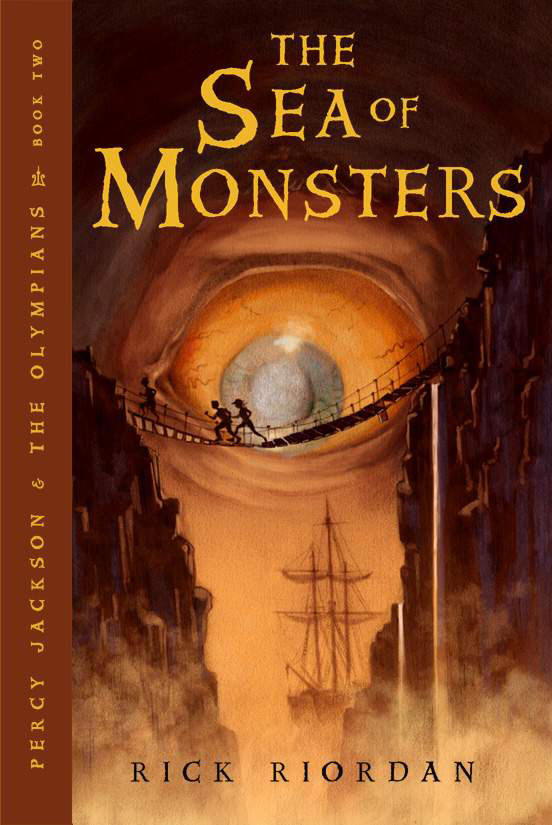In school, Greek mythology is not so palatable. Adventures of heroes who tromp off into battles, meeting strange creatures and powerful gods, are turned to dull stories by the class syllabus.
Yet in the Percy Jackson and Olympians series, mythology accelerates to the modern day. The novels are by Rick Riordan, who narrates through the protagonist Percy Jackson, the son of Poseidon and a mortal woman. They start at The Lightning Thief, describing Percy’s quest to retrieve Zeus’s master bolt and stop a war between the Big Three gods, Zeus, Poseidon, and Hades. Using witty words and clever commentary, Riordan manages to relate Greek mythology into the modern life of an American teenager.
The Lightning Thief, while displaying Riordan’s skills as a teen writer, is upstaged by his sequel, The Sea of Monsters. In this particular novel, Percy must save his fellow demigods (Children of both godly and mortal descent) and retrieve the Golden Fleece to prevent a terrible calamity. Like The Lightning Thief, Greek mythology is put into the present day as Percy quite literally goes through The Odyssey. Battling Polyphemus, who appeared as the cyclops who cursed Odysseus for putting out his eye, and sailing through the Sea of Monsters, Percy Jackson entertains the reader by adding his own spin to every mythological god and creature he meets, even telling about how a Hydra causes new donut shops to appear every time one of its heads is chopped off.
Rather than merely being smart and funny, Riordan also illustrates parts of a demigod’s life. Such as the conflict of being the son of a god who essentially had many offspring, some of which may be almost unappetizing to be related to, and the problems of having a stable lifestyle as a teenager who has to battle monsters constantly to survive. The novel itself is great for adolescents. Due to its somewhat juvenile humor and analogies, it may seem unsophisticated to adults, but is a great read for those who need to laugh and share in someone else’s battles. If anything, the only parts that need to be upgraded in Riordan’s novel is probably the childish vocabulary used and a deeper look into the complications of the truly immoral deeds that the mythical gods of Greece have done in the past. However, considering that Riordan’s audience is for adolescents, such material may be too heavy. Additionally, Percy as the protagonist makes the reader both sympathize and reflect over being a teenager with a dysfunctional family and social life, something that many teenagers can relate too.
Elianne Melendez, a senior at Santa Fe High School, praises, “I prefer [Riordan’s] style to J.K. Rowlings’s in fact. It reads more informal and personal, like a very frank and straightforward person talking to you. In this particular novel, it seemed as if he was getting a better hang of the voice of his characters.” Percy Jackson’s life is hectic and if put into a dusty textbook format, can be seen as a modern day Perseus, as the author’s intent. Instead, as a modern day hero, Percy Jackson becomes a teenager who saves the world against all odds and can still be good-humored about it. Like The Lightning Thief, The Sea of Monsters is to become a film, coming out in theaters on March 27, 2013.


